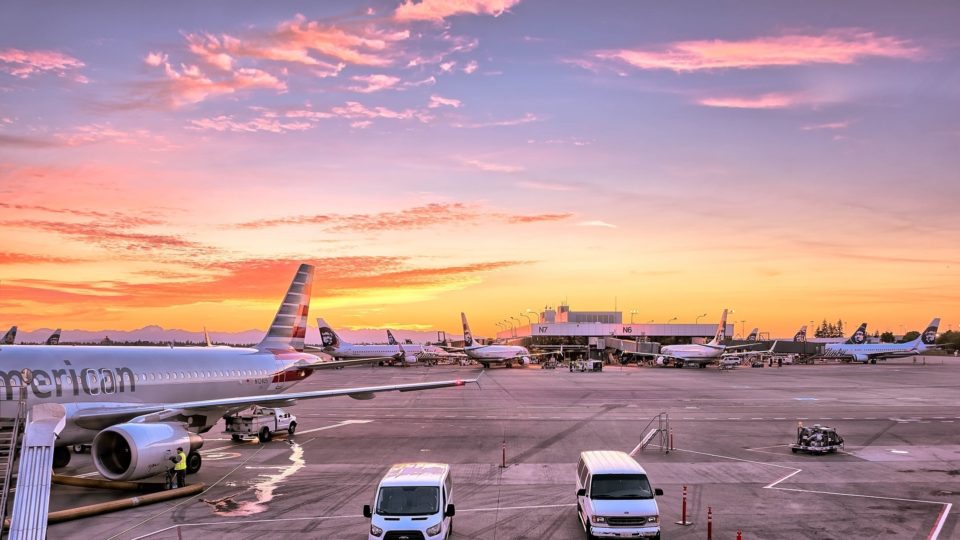Why You Should Use Unused Airline Miles And Credit Card Points For Travel ASAP

Sitting on a stash of AMEX Points or Chase Ultimate Rewards points? It may be tempting to keep accumulating your points, saving up for that dream vacation. After all, who doesn’t love free travel?
But travel industry experts are warning that “a glut” of unused frequent flier miles and credit card points could pave the way for airlines and hotels to devalue their loyalty programs.
What’s happening?
According to a new ValuePenguin study, the five biggest airline loyalty programs in the United States are sitting on a combined $27.5 billion in rewards program liabilities. The airline loyalty programs include Delta Air Lines’ SkyMiles, American Airlines’’ AAdvantage, United Airlines’ MileagePlus, Southwest Airlines’ Rapid Rewards, and JetBlue’s TrueBlue.
Thanks to the pandemic, those airlines lost a combined $35 billion last year. That revenue loss caused airlines to take on debt to cover operating costs, using loyalty programs as part of their collateral. For example, United Airlines values its MileagePlus program at $21.8 billion. Because the margin is so high on frequent flyer programs and rewards point, they’re almost as valuable as the airlines themselves.
That’s also why these programs have served as important collateral to financial institutions when taking out debt to keep the airline or hotel running with decreased demand.
A perfect storm for points hoarders
Here’s where it gets scary for anyone sitting on a stockpile of credit card points.
With travel returning, airlines will be looking to shore up their balance sheets for debtors and return to profitability for shareholders.
According to Bloomberg, this perfect storm of unused reward points, increased demand for travel, and airline debt could take a big hit on rewards programs.
At scale, unused points for free travel means that airlines may be forced to devalue their miles to maintain cash flow for normal operations. Devalued miles means all those points you’ve saved up with credit card purchases over the course of the pandemic won’t be worth diddly in the future.
This is a big concern, especially since many people who use these credit card rewards like cash. Often, people save them up over time and used sparingly for free flights and hotel stays.
I know I certainly do.
Jay Sorensen, president of airline consulting firm IdeaWorksCompany, tells the Wall Street Journal that devaluation is basically imminent: “You have travel returning, pent-up demand and an oversupply of miles. We are set for a devaluation.”
Rule #1 – Don’t hoard credit card points and frequent flyer miles
Hoarding airline points for a future vacation might seem like a good idea, but it is not.
It’s better to redeem your points as soon as possible because those miles’ value will go down over time. So the most important thing when deciding what to do with your miles is how much they are worth at this moment and whether or not that value will decrease in the foreseeable future.
It’s important to remember that airline points and frequent flyer miles are perks not assets. They have a store of value based on their program, but legally-speaking, it’s still a rebate. It’s a currency only within the parameters of that program. Think of it as a credit or token, not actually money.

They come with terms of service, all of which can be changed by the issuing bank, airline, or credit card company at a moments notice.
As a store of value, the purchasing power of frequent flier miles and credit card points also fades over time. Think of it like inflation – The purchasing power of a dollar diminishes over time due to inflation thanks to macro factors in the marketplace. Those same economic factors effect points and miles, especially if you’re hoarding a stash that you’ve been accumulating for years.
If you want to get the best bang for your buck, use them as soon as possible.
Credit card points – a historically “bad investment”
Think it can’t happen to you? That your nest egg of points will always be worth something?
Wrong.
Even before the pandemic, the valuation of these programs has historically declined.
United, for example, almost immediately devalued the value associated with its MileagePlus Program in April 2020, just one month into the pandemic. Forbes’ Dan Reed puts this in perspective
In truth, carriers have been devaluing their frequent flier miles gradually for many years. They were doing so already before the pandemic arrived, then in April 2020 United devalued its MileagePlus Program miles, and did it again last October. Delta did it in October, and then again in February of this year. In April of this year Southwest devalued its Rapid Reward miles by 6.5%. And there are plenty of experts out there now warning that more such moves are likely, maybe even inevitable, sometime between now and the year’s end, assuming there’s not another surge in the number of Covid-19 cases and deaths in the U.S.
American Airlines infamously dealt a blow to frequent flyers in 2016. The airline severely devalued the AAdvantage award chart, raising prices by tens of thousands of miles for many of their routes. A one-way off-peak flight to Hawaii went from 17,500 to 20,000 points. They then switched to a dynamic redemption system, for the most part.
In 2015, Delta totally axed an award chart from its SkyMiles program. Instead, it does dynamic miles pricing based on a number of factors. Travelers are blinded to the cost of the award fare, which is subject to change. United has more or less done the same.
Because of these historic changes to airline loyalty programs, experts recommend not letting your balances build up too high to get the most value out of your rewards spending.
Another thing to keep in mind: Depending on the program, points can expire if your account is inactive.
It’s huge bummer losing out on a free flight simply because you didn’t fly on the same airline for a couple years.
Use it or lose it.
In conclusion
It’s never been easier to accumulate points with everyday purchases. Just remember these points can expire or devalue quickly.
Even if the perks are great, stacking up points and frequent flyer miles isn’t the same as building wealth.
—
[H/T: Lifehacker]